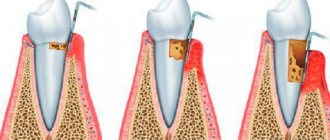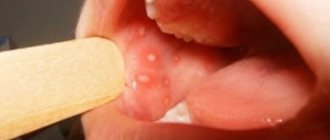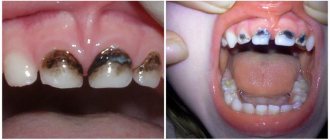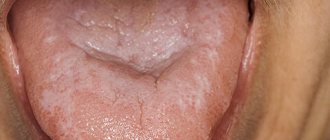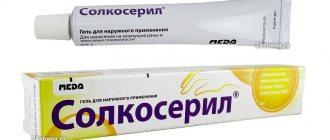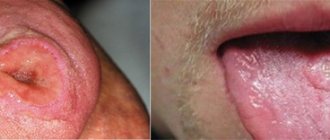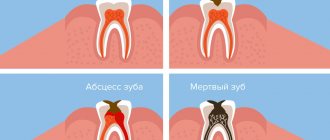A sore and dry throat, pain when swallowing, weakness, and fever signal a disease of the pharynx.
Below in the article you will find the causes of the disease; the doctors who treat him; necessary medical procedures for treatment; as well as general information about the disease, its localization, features of diagnosis of diseases and their treatment. However, we advise you to consult a doctor, because self-medication in 90% of cases is fraught with the disease progressing to the chronic stage with extremely unpleasant complications. Make an appointment and consultation
COMPLICATIONS OF PHARINGITIS OR WHAT HAPPENS IF IT IS NOT TREATED OR TREATED INCORRECTLY
The most serious complications of pharyngitis are represented by autoimmune diseases that arise as a result of increased sensitivity of the body to the microbes that cause the disease... What does this mean? This means that strep throat itself is not very dangerous, BUT it can lead to very serious consequences if left untreated. In this regard, streptococcal pharyngitis is especially dangerous, as a result of which purulent and non-purulent complications can develop...
Purulent complications:
- A peritonsillar abscess is an inflammation in the peritonsillar tissue (the area around the tonsils), where an abscess forms.
- Retropharyngeal abscess - formed as a result of suppuration of the lymph nodes and tissue of the retropharyngeal space.
Non-purulent complications:
- Inflammation of the kidneys (post-streptococcal glomerulonephritis).
- Rheumatism.
With rheumatism, inflammatory nodules form in various tissues of the body. For example, if they form in the heart muscle, on the inner surface of the heart or, in the most severe case, on the valves, they can cause disruption of the flow of blood through the heart, which can lead to undesirable consequences, including the formation of heart disease... Inflammatory nodules can also be deposited in the skin, muscles, joints, which may result in swelling and pain...l
Symptomatic therapy
Before prescribing special treatment, rinsing with antiseptic solutions is effective in order to more quickly restore the size and density of the submandibular lymph nodes in case of ARVI, sore throat, and other inflammatory processes in the oral cavity. In the presence of combat syndrome, it is possible to take analgesics. In other cases, therapy is selected only after the causes of the condition have been established. The combination of lymphadenopathy with fever, rapid deterioration in health, headache, or detection of tumor formations in the head area is an indication for emergency medical attention.
TREATMENT OF PHARINGITIS
First of all, with pharyngitis, it is necessary to exclude irritating foods from the diet (hot, cold, sour, spicy, salty), and also stop smoking and drinking alcohol. You need to drink a lot (1.5–2 liters per day), it is better if these are fortified drinks (for example, berry fruit drinks or rosehip decoction). Rinse with warm antiseptic solutions (furacillin, iodinol, etc.), lubricate (Lugol's solution in glycerin) or irrigate (for example, Ingalipt, Tantum Verde, Cameton) of the pharynx. Rinsing with a warm saline solution (1 teaspoon per glass of water), inhaling a solution of soda with vegetable oil, or instilling a warm solution of soda with the addition of glycerin into the nose also helps to alleviate the condition. To reduce body temperature, you can take antipyretics (paracetamol, aspirin - except for children). The doctor may also prescribe medications with interferon and lysozyme, antihistamines and vitamin-mineral complexes.
If it is determined that pharyngitis is of bacterial origin (the causative agent is most often hemolytic streptococcus), then, most likely, it will not be possible to do without antibiotics. They must be prescribed by a doctor; self-medication is unacceptable. The drugs of choice are penicillins, and if they are intolerant, first generation cephalosporins and macrolides.
Treatment of chronic pharyngitis is always long-term; in addition to eliminating the source of chronic infection in the nasopharynx, it includes treatment of concomitant diseases of the gastrointestinal tract, endocrine disorders, etc. With hypertrophic pharyngitis, the overgrown lymphoid tissue is cauterized by applying electric current or cold to it ( electrocoagulation or cryotherapy ). With atrophic pharyngitis, on the contrary, therapy is aimed at increasing mucus secretion and reducing symptoms of pharyngitis such as dryness (lubricating the pharynx with Lugol's solution in glycerin) and stimulating regenerative processes in the mucous membrane (vitamin A preparations, ATP).
in the treatment of chronic pharyngitis :
What to do if your lymph nodes hurt?
Treatment of lymph nodes depends entirely on the causes of inflammation. In order not to “overlook” the disease, it is enough to be attentive during a visual examination. With inflammation, the lymph nodes enlarge - the familiar, for example, submandibular relief becomes smoother. There are about a hundred diseases associated with this condition, so self-diagnosis is a bad idea. A much better decision would be to contact a therapist: he will be able to conduct a comprehensive examination, after which he will refer you to a specialist, depending on the nature of the inflammation.
Characteristic symptoms of the course of inflammation are also a change in the consistency of the lymph node (it can become soft from suppuration, or hard due to the development of cancer cells of the lymph tissue), the occurrence of painful sensations during palpation or swallowing, redness of the skin at the site of the lesion, as well as apathy and fatigue characteristic of many diseases , headaches and fever, which is inevitable during inflammation.
If the lymph nodes in the neck hurt from a sore throat or any other disease in which such sensations are only a symptom, then the pain will go away along with the end of the underlying disease. Mild symptoms (mild pain or tingling when swallowing or pressing, general weakness and frequent colds) indicate a general deterioration of the immune system.
In the second case, the most common treatment method is ultra-high frequency therapy - a painless and discomfort-free procedure performed using special equipment. Antibiotics and anti-inflammatory drugs can be prescribed by a doctor in case of urgent need, but in general it is enough to adhere to bed rest, take vitamins and drink plenty of warm fluids. Echinacea tincture will help ease the course of the disease - a truly magical plant, a natural antiseptic that eliminates inflammation and strengthens the immune system. Decoctions of mint, chamomile or calendula will help you feel better, and rinsing with salt and soda will help fight inflammation.
Remember that inflamed lymph nodes should under no circumstances be heated, rubbed, or an iodine mesh applied to this area. Such procedures aggravate the course of the disease and accelerate the spread of infection.
CAUSES OF PHARINGITIS
The main cause of pharyngitis is inhalation of cold or polluted air, exposure to chemical irritants (alcohol, tobacco). Infectious pharyngitis can be provoked by various microbes (strepto-, staphylo-, pneumococci, as well as viruses (influenza, adenoviruses) and fungi (candida). Pharyngitis often develops as a result of the spread of infection from any source of inflammation adjacent to the pharynx. This is how pharyngitis develops for sinusitis, rhinitis, dental caries.
According to the etiological factor, acute pharyngitis can be divided into viral, bacterial, fungal, allergic, traumatic (as a result of a foreign body or surgical intervention) and caused by exposure to irritating factors (hot liquid or steam, acids, alkalis, radiation, etc.).
Chronic pharyngitis is usually classified not according to etiology, but according to the nature of the changes developing in the mucous membrane: catarrhal (simple), atrophic (subatrophic) and hypertrophic. These forms of chronic inflammation are often combined.
Thus, the presence of diffuse atrophic changes in the mucous membrane can be combined with focal hyperplasia of the lymphoid tissue of the posterior pharyngeal wall or tubopharyngeal ridges.
Why does inflammation of the lymph nodes in the neck occur?
So why does inflammation of the lymph nodes in the neck occur? Lymph nodes are an integral part of the human immune system, part of its defense, a kind of biofilter that helps prevent the development of many diseases. If the filter becomes clogged and simply cannot cope with pathogenic microorganisms, inflammation occurs. Thus, if your lymph nodes hurt, it means there is an infection in your body that threatens your health. In total, nine pairs can be classified as cervical lymph nodes, one way or another connected with the area of the face or neck. They are located near the ears, jaw, above the collarbones and even under the tongue, so the occurrence of pain in these areas may indicate inflammation of the lymph nodes.
Most often, the cervical lymph nodes become inflamed due to a sore throat or ear infection. Also, the cause of the painful condition can be ARVI, which peaks in the autumn and spring periods, influenza, any diseases of the oral cavity, from stomatitis to caries. The lymph nodes located next to the ears become inflamed with otitis media. The location of the lymph nodes plays an important role in determining the source of infection, since they usually signal disease in nearby organs.
Much less often, pain in the lymph nodes occurs due to metabolic disorders, alcoholism, thyroid disease or simple allergies, however, it would be wrong to completely exclude these options.
In addition, inflammation of the lymph nodes, unfortunately, can be associated with serious problems, for example, mechanical damage (trauma) to the lymph node itself or nearby tissues, as well as cancerous degeneration of lymph tissue cells.
Be that as it may, inflamed lymph nodes are a sign of dysfunction of the immune system. In this regard, there is a common misconception that pain in individual nodes, their enlargement, may indicate the presence of AIDS in a person. This is not an entirely correct statement, since HIV-infected people suffer from enlargement of entire groups of lymph nodes.
Symptoms of pathology
The fact that a person has “caught” a lymph node usually means its increase in size. Occasionally it hurts, and the skin over it becomes red. In this case, doctors talk about lymphadenitis.
An important point is the mobility of the lymph node. Normally, it easily moves a short distance. If the lymph node is motionless and enlarged, a doctor’s consultation is urgently needed.
Not all lymph nodes can be examined independently. When magnified, they can be felt on the neck, under the armpits, and in the groin area. It is important where the inflamed area is located. If a lymph node in the neck has caught a cold, how to treat it will differ from the situation when the groin or axillary area is affected. By localization, one can judge a preliminary diagnosis, since lymphadenopathy is often only a symptom of the underlying disease.
Symptoms of paratonsillar abscess
The typical clinical manifestation of PTA is severe sore throat (usually unilateral), fever, and muffled voice. Patients may also complain of drooling and difficulty swallowing.
Trismus (spasm of the masticatory muscles), associated with irritation and reflex spasm of the internal pterygoid muscle, occurs in almost 2/3 of patients and is an important distinguishing feature of PTA in comparison with severe acute tonsillopharyngitis. Patients may also complain of neck swelling and ear pain on the affected side.
What diseases does it occur in?
First, you need to look for inflammation near the affected lymph node. Usually bacteria or viruses enter it from a nearby organ.
Diseases in which the cervical lymph node becomes inflamed:
- acute respiratory infections and acute respiratory viral infections;
- tonsillitis (acute or chronic);
- dental diseases (focus of infection in the mouth).
Enlarged inguinal lymph nodes are often associated with sexually transmitted diseases, including herpes infection. Axillary units are inflamed with hidradenitis - a pathology of the sweat glands.
Sometimes inflammation of the lymph node occurs against the background of a general weakened state of the body. This is observed in malignant neoplasms, blood pathologies, HIV infection and viral hepatitis B.
In a chronic specific inflammatory disease, an enlarged lymph node is a normal variant. This is a reaction to the underlying pathological process and does not require treatment.
Enlargement of more than one lymph node often indicates infection. This is how tuberculosis, syphilis, and tularemia manifest themselves. Inflammation of a large number of lymph nodes indicates a serious infectious process - HIV, toxoplasmosis, brucellosis, CMV, mononucleosis and others. This requires urgent consultation with an infectious disease specialist.
Throat lymphoma: diagnosis and treatment
After the patient contacts the oncology clinic of the Yusupov Hospital, the oncologist prescribes a series of laboratory and instrumental tests. A biopsy of tumor tissue is required to verify the diagnosis. CT and MRI are indicated to determine the stage of the tumor and the presence of metastases in the lymph nodes. At the Yusupov Hospital there is a PET-CT scanner (positron emission tomograph), which helps assess the extent of the cancer process and determine treatment tactics.
All lymphomas of the throat are subject to surgical treatment, which consists of maximum removal of the tumor and affected nodes. Radiation therapy is prescribed as adjuvant therapy for large tumors and low differentiation. Chemotherapy is currently used as an independent method of therapy.
The Yusupov Hospital ranks first among Moscow clinics in the treatment and rehabilitation of various oncological tumors. Experienced doctors and nursing staff are always ready to provide you with highly qualified medical care and psychological support.
